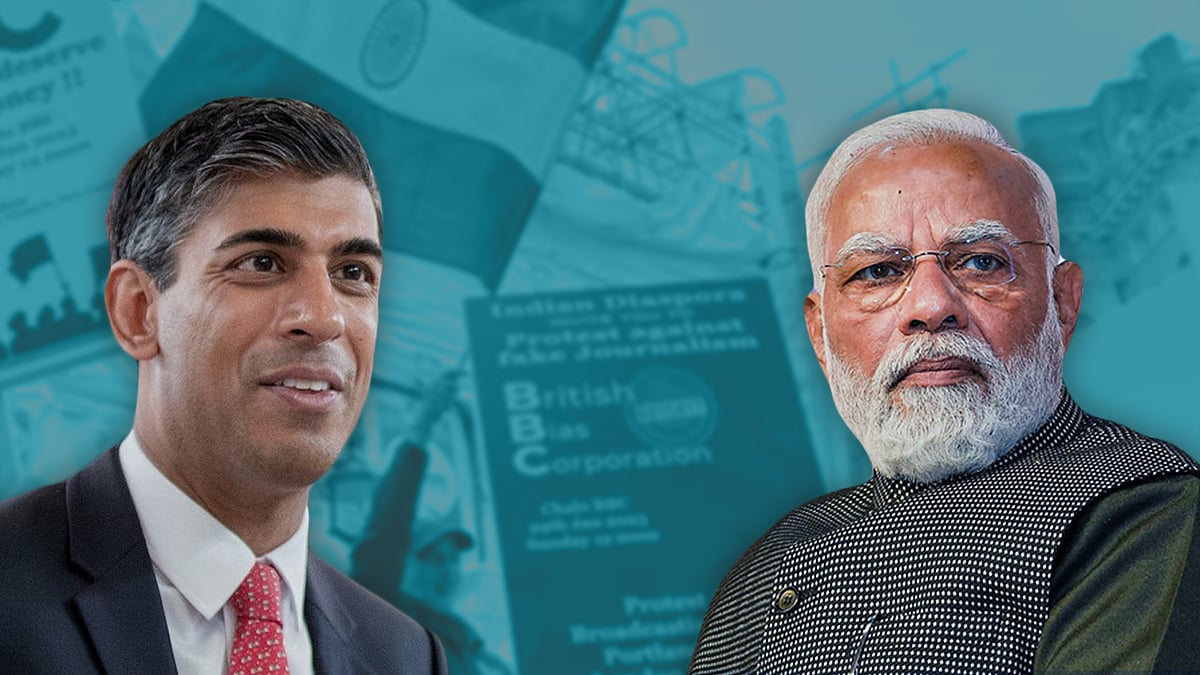Why Jaishankar’s remark on discrimination is little more than double-speak
In 2021, in response to concerns about racism, the minister had chosen to call a spade a spade.
Speaking at an event during his recent visit to the US for the 78th session of the UN General Assembly, External Affairs Minister S Jaishankar had responded to a question on the treatment of minorities in India. “I challenge you to show me evidence of discrimination [in India],” he said.
“What is the test really of fair and good governance or of the balance of a society? It would be whether in terms of the amenities, the benefits, the access, the rights, do you discriminate or not and in every society in the world, at some point, there’s been some discrimination on some basis. If you look at India today, it’s a society today where there is a tremendous change taking place, the biggest change happening today in India is the creation of a social welfare system in a society which has less than $3,000 per capita income. Nobody has done that in the world before,” the Times of India’s tweet quoted the minister as saying.
“Now, when you look at the benefits of that, you look at housing, you look at health, you look at food, you look at finance, you look at educational access, health access. I defy you to show me discrimination. In fact, the more digital we have become, the more faceless the governance has become. Actually, it’s become fairer.”
By recasting the question of societal discrimination into a query about whether the government’s social welfare schemes were discriminatory, Jaishankar managed disingenuously to claim that India has, if anything, become a fairer society. It wasn’t a unique position; others from the BJP camp have earlier tried to counter allegations of inaction against hate speech with the party’s motto of sabka saath, sabka vikaas.
But commentators on social media responded with alacrity. Prashant Bhushan, quoted a non-exhaustive list of recent episodes of flagrant discrimination against minorities published in The Telegraph to rebut the minister’s claim of a fair society.
Online news portal The Wire set out a set of facts and figures in response to Jaishankar’s challenge, including a clear and unambiguous statement from Fernand de Varennes, the UN Special Rapporteur on minority issues on September 20.
“India risks becoming one of the world’s main generators of instability, atrocities and violence, because of the massive scale and gravity of the violations and abuses targeting mainly religious and other minorities such as Muslims, Christians, Sikhs and others. It is not just individual or local, it is systematic and a reflection of religious nationalism.”
The many reports and statements about attacks on religious freedom in India by the US Commission on International Religious Freedom are of course well known.
But we don’t need to go that far to see the double standards in Jaishankar’s reductive dismissal of the question by reference to his view that the Indian state is even-handed in its social welfare programmes.
Not so long ago, the minister expressed a very different sentiment in relation to allegations of racism and discrimination against Britain’s South Asian minorities, in the Rajya Sabha, the Upper House of India’s Parliament.
On March 15, 2021, in a session discussing matters raised with the permission of the Chair, BJP MP Ashwini Vaishnaw had requested the External Affairs Minister to respond to concerns about what he saw as growing evidence of racist discrimination against members of the Indian diaspora in Britain.
The MP gave three instances of such “discrimination”: Duchess of Sussex Meghan Markle’s experience of racism in the British royal family; the higher than average mortality rate among South Asian immigrants during the Covid-19 pandemic; and the experience of Rashmi Samant, an Indian student who resigned as the president of the Oxford University students union after alleged cyber-bullying.
I wrote about the case of Rashmi Samant at the time, setting out the fact that she faced attacks by her student detractors only after xenophobic and antisemitic comments made by her before had surfaced.
Responding to Vaishnaw’s concerns about discrimination against Indians in Britain, Jaishankar said, “As the land of Mahatma Gandhi we can never ever turn our eyes away from racism, wherever it is, particularly so when it happens in a country where we have such a large diaspora. As a friend of the UK we have concerns also about its reputational impact. We have strong ties with the UK, and we will take up such matters with great candour when required; we will monitor these developments very very closely and we will raise them when required. And we will always champion the fight against racism and other forms of intolerance.”
“Thank you. It is a very serious matter,” said the then Chairman of the House, Venkaiah Naidu, welcoming the minister’s response.
No one in the British government would dream of seeking to excuse racism and discrimination in Britains’s institutions on the basis that their social welfare schemes are ‘colour blind’. But the contrast between Jaishankar’s concern for racism affecting relatively well-off Indian immigrants in Rishi Sunak’s Britain, and the vastly less fortunate minority groups in Narendra Modi’s India is as stark as it is revealing of a callous and uncaring attitude.
When it comes to discrimination against minorities in India, it would appear that, at least in the eyes of the Indian government, what is sauce for the goose is most definitely not sauce for the gander. India must therefore demand that Jaishankar’s promised “fight against racism and other forms of intolerance” begins at home.
 Did Rishi Sunak stand by Modi in BBC documentary row?
Did Rishi Sunak stand by Modi in BBC documentary row?